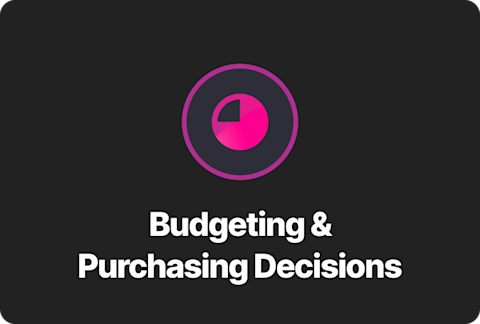Paying Taxes on Profits: What You Need to Know About Stocks, Crypto, and More

If you've made money from stocks, crypto, or other investments, congratulations! But before you cash out and spend your profits, there’s one thing you need to understand—taxes. Many people assume that investing is all about making money, but knowing how to handle capital gains taxes is just as important as making the right investment choices.
If you’re new to investing and have no idea how capital gains, crypto taxes, or investment income tax work, don’t worry—you’re in the right place. By the end of this post, you’ll know exactly what you need to do to stay on top of your taxes and avoid surprises from the IRS.
What Are Capital Gains?
When you sell an asset like stocks, crypto, or real estate for more than you bought it for, that’s a capital gain—aka your profit. But just like a paycheck, that profit is taxable.
There are two main types of capital gains:
Short-term capital gains: If you sell an investment after holding it for less than a year, you’ll pay ordinary income tax rates—meaning your profit is taxed just like your paycheck.
Long-term capital gains: If you sell an investment after more than a year, you’ll get a lower capital gains tax rate, which is usually 0%, 15%, or 20%, depending on your taxable income and filing status.
The takeaway? Holding investments for over a year can help you pay less in taxes.
What About Unrealized Capital Gains?
Let’s say your stocks or crypto have increased in value, but you haven’t sold them yet. That means you have unrealized capital gains—profits on paper that haven’t been taxed yet. You don’t owe taxes on these gains until you sell the investment. This is why some investors choose to hold assets long-term—to delay paying taxes while their money continues to grow.
Understanding Capital Gains Taxes on Stocks
If you’re investing in the stock market, you need to know how capital gains taxes apply:
Buying and holding stocks: You don’t owe taxes until you sell.
Selling for a profit: You’ll pay either short-term or long-term capital gains tax, depending on how long you held the stock.
Capital losses: If you sell an investment at a loss, you can use that capital loss to offset gains from other investments, potentially lowering your overall tax bill.
Example: If you made $2,000 on stocks but lost $500 on another investment, your net capital gain is $1,500—which is what you’ll be taxed on.
Crypto Taxes: What You Need to Know
Crypto isn’t tax-free money (unfortunately). The IRS treats crypto just like stocks, meaning any cryptocurrency gains are taxable when you sell, trade, or even use it for purchases.
Here’s when crypto taxes apply:
Selling crypto for cash: If you sell Bitcoin, Ethereum, or any other crypto for more than you paid, that’s a capital gain and is taxed accordingly.
Trading one crypto for another: Swapping Bitcoin for Ethereum? The IRS considers this a taxable event, even though you never cashed out.
Using crypto to buy goods/services: If you buy something with crypto, you may owe capital gains tax on the difference between what you originally paid and its value when you spent it.
Tracking your crypto transactions is essential—keeping records of purchases, trades, and sales will make tax time much easier.
What About Mutual Funds and Real Estate?
Mutual funds: If your mutual fund sells assets and makes a profit, those gains are passed on to you and may be taxed—even if you didn’t sell anything yourself.
Real estate: If you sell a house for a profit, you could owe capital gains tax unless you qualify for an exclusion (like the home being your primary residence for at least two years).
How to Reduce Your Tax Bill
Want to keep more of your investment gains? Tax-advantaged accounts can help lower your tax bill while allowing your money to grow over time. Here are some of the most popular options:
Roth IRA & Traditional IRA: A Roth IRA lets you withdraw profits tax-free in retirement, while a Traditional IRA lowers your taxable income now, deferring taxes until withdrawal.
401(k) Plans: Employer-sponsored 401(k) plans allow you to contribute pre-tax income, reducing your taxable earnings and letting your investments grow tax-deferred until retirement.
Health Savings Accounts (HSAs): If you have a high-deductible health plan, you may have access to an HSA that allows you to save and invest money tax-free for qualified medical expenses.
These are just some of the most commonly used tax-advantaged accounts. Taking advantage of them can help you keep more of your earnings and reduce your tax burden.
✅ Stay Smart About Taxes!
Investing can be a powerful way to grow your wealth, but taxes can take a chunk out of your profits if you’re not prepared. By understanding capital gains taxes, crypto taxes, and tax-advantaged accounts, you can make smarter financial decisions and keep more of your money.
Take control of your finances today! Whether you're just getting started or looking to optimize your investment strategy, Step can help you budget, build credit, and make informed money moves. Sign up now and take the next step toward financial success. Investing is a great way to build wealth.








